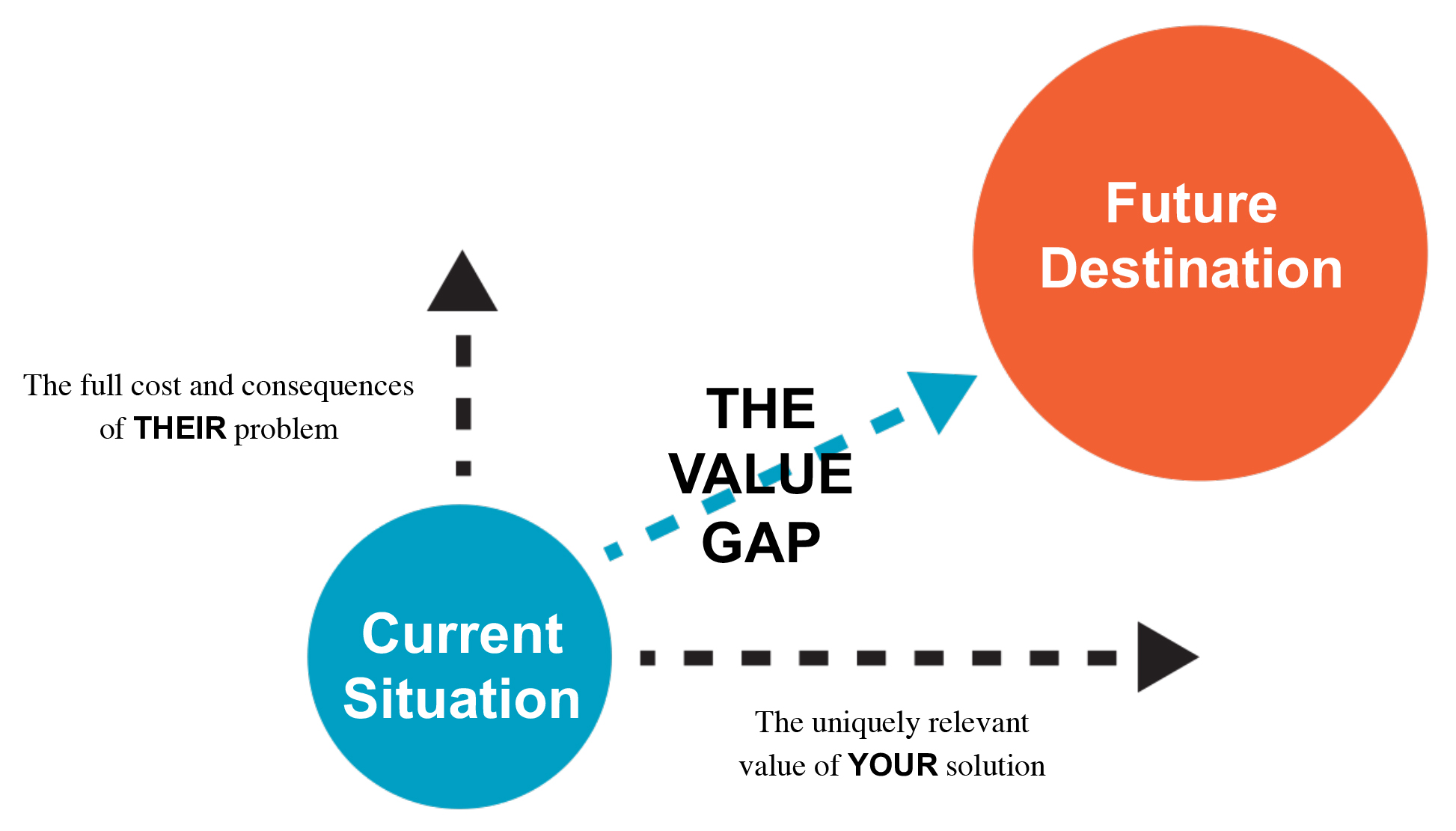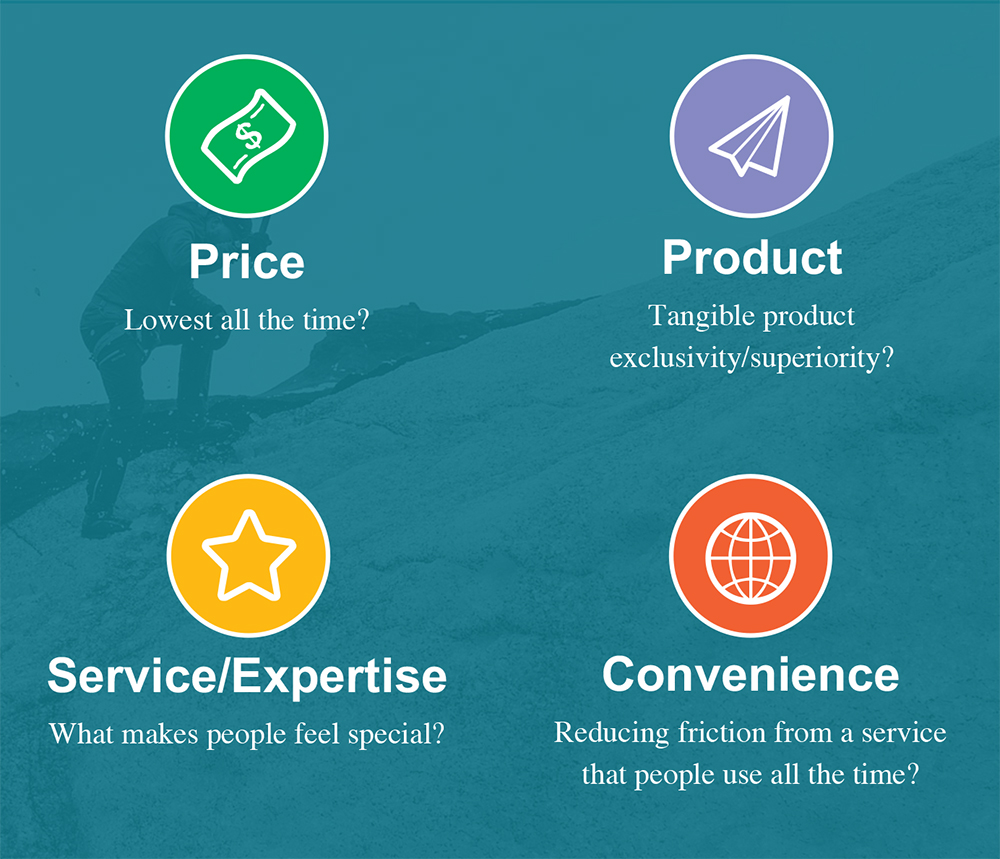
Our Process

A regenerative business is founded on principles of interdependence. These purpose-filled companies understand the ecosystem in which they operate within its community, its industry and its marketplace and this knowledge is the foundation of strategic decision-making. By investing in the evolving potential of people and resources, they actively manifest high-ordered value-creation possibilities. The Purposeful Selling value-creation process is rooted in a deep track-record of delivering successful outcomes, which are designed to minimize client risk and maximize the return on time, energy and resources invested. By flourishing in their business, our clients actively bring about a more resilient and beneficial economy for everyone.
Sometimes business owners doubt this approach will work in their business or industry. If they’re competing on price and struggling to find long-term, quality customers who appreciate their value, one thing is clear, doing the same things won’t generate different results. Every business has a unique perspective that’s the backbone of their authentic brand story. It’s in the values you demonstrate, the team members selected to serve customers, the supplier relationships chosen, and the content shared. Good relationships are built on trust – it’s what binds people to business and the solid foundation of your company culture.
Purposeful Selling supports family-run, service-based businesses to build transparent, values-driven brand reputations, amplifying trust with their ideal customer segments. This process guarantees mutually valuable outcomes. Overall business strategy is anchored in the answers to these three questions: Who will we serve? How will we win? And what capabilities do we need?
Core Values and Business Purpose
It starts by identifying the three to five core values, which are the underpinning of the family-run business approach. The essence of any successful business strategy is to collaborate with people you like. The share commitments to the common principles you use to run your business. What ethical standards do you hold for your business? What are the non-negotiables you won’t sacrifice regardless of the money being offered?
It takes hard work, worthy input, and a lot of sweat equity to make a business successful. It’s only possible with purpose and an enthusiastic belief that your meaningful contributions help create a better community. You deserve a reasonable return on your investment and there’s a higher likelihood that will happen when you work with people who value what you do.
Ideal Customer Profile (Who we Serve?)
Any true marketing or sales professional will reinforce that they won’t help you until you understand who your best customers represent. These are the people who pay for your value, provide referrals, give references/testimonials, and want to see your business succeed. The reason they support your business is because it’s an enjoyable experience and they want you to continue delivering good value. One of the most accessible ways for a small business to shape their competitive advantage is understanding their customers better than rival offerings.
In this hyper-competitive marketplace, it’s lazy not to invest in deeply knowing what loyal customers value. If you know what your customers want and how they want it, you have a massive advantage. By researching their needs and uncovering what’s important to them through competitive analysis (aka SWOT), you develop trust and can consistently deliver important outcomes according to their expectations. By solving meaningful problems and consistently meeting evolving customer expectations of value, you can generate a loyal customer base that is an appreciable asset in sustainable success.
Business Model Validation (How we win?)
Value is defined in customer terms and helps them secure consequential outcomes or achieve worthwhile business objectives. A good business model is grounded in a stake of authority in one of fours pillars of defensible value. These are convenience, service experience/expertise, price, and product innovation. Based on competitive insights uncovered and customer profile definition, relevant value drivers are identified and aligned with the operating advantages of the business.
Building from a company’s strengths is the most reliable way to differentiate a company. It is noted that nearly 90% of business-to-business clients compete predominantly on excellence in sales approach or superior customer experience received. A successful business model is built on value-added services that generate customer involvement and ensure recurring revenue.
Brand Story Development
Once necessary research and customer feedback is complete, it’s time to start defining the business authentic brand story. The value proposition is how you and your solution helps the customer achieve their business objectives, makes a meaningful difference to their business, and helps you stand out from competitors. The primary brand vehicle for most businesses is their online presence and digital identity (website & social media profiles), which demonstrate abundant social proof of trustworthiness and credibility. Deliverables that provide the most meaningful support of the brand story is defined at the beginning of value proposition consultation.
Pillars of a Value Proposition

Implementing the Value Proposition (What capabilities are needed?)
Several tools and tactics exist to establish trust and those that support specific customer development are selected and become part of the marketing and sales strategy. Sometimes there’s a need for a specific skill set development to achieve near-term sales goals. It may be better prospecting, qualifying opportunities, leveraging social networks, connecting with senior decision makers, or overcoming price objections. The real fun begins when the brand story is introduced to the market, prospects are attracted to the value proposition and become customers.
The sales and marketing strategy direction is determined by the needs of the business and client’s commitment to scaling business results. Value propositions live in a dynamic marketplace, which means they continue to evolve as ideal customer demands or adjacent service opportunities decide. Good brand strategy is an iterative process where customer feedback and business successes are incorporated into future activity to improve sales and marketing effectiveness as the company grows.

